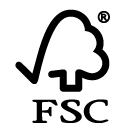This website stores cookies on your computer. These cookies are used to collect information about how you interact with our website and allow us to remember you We use this information in order to improve and customize your browsing experience and for analytics and metrics about our visitors both on this website and other media. To find out more about the cookies we use, see our Privacy Policy .


Goods2Know™ 101
What is a "sustainable" product? The answer is nuanced and we believe the key is to always add context. A product made from biodegradable plastic could be considered sustainable, but what if it were shipped from across the globe leaving a large carbon footprint, or what if it required toxic chemicals to refine the material – should it still be considered "sustainable"? We think the biodegradable feature should be highlighted – that's good to know in a sales pitch – but we don't need to then conclude it is therefore an outright "eco" product.
HPG believes there will never be a perfect, zero-impact product so the best way to answer the question, "Do you have any sustainable products?" is, "Yes, which sustainability issue is most important to you?" Everyday, distributors help their clients shop promotional products based on price, color, and technical features; now, in this new world, we also have sustainability features to differentiate between products. HPG wants to make that easy for distributors to navigate.
HPG also wants to make this new competitive landscape easy for distributors to take advantage of so we have developed "Goods2Know" as a label and new way to shop hpgbrands.com. On our product pages we keep the language under the Goods2Know sections simple, high-level, accessible. But some customers may way all of the details, so below we have added more technical information, and links to even more information if needed.
Goods2Know will keep evolving every year and you can help steer how it happens. Please email sustainability@hpgbrands.com if you have any questions or feedback.
HPG Goods2Know™ Features
Certified Sustainable

Forest Stewardship Council (FSC) ensures that products come from responsibly managed forests that provide environmental, social, and economic benefits.
Sustainable Forestry Initiative (SFI) is a North American organization that recognizes paper sourced from sustainably managed forests and helps guide consumers toward partnering with paper manufacturers who work with responsibly managed forests via their online directory.

Global Recycled Standard (GRS) is a voluntary product standard for tracking and verifying the content of recycled materials in a finished product. The standard applies to the full supply chain and addresses traceability, environmental principles, social requirements, chemical content, and labeling.
Recycled Claim Standard (RSC) is an international, voluntary standard that sets requirements for third parties. It is a chain of custody standard to track recycled raw materials through the supply chain.
Global Organic Textile Standard (GOTS) is a standard that not only verifies the presence and amount of organic material in fabrics and tracks the flow of raw materials from its source to the final product, but also audits companies to make sure these materials are processed according to strict standards.
Sustainable Forestry Initiative (SFI) is a North American organization that recognizes paper sourced from sustainably managed forests and helps guide consumers toward partnering with paper manufacturers who work with responsibly managed forests via their online directory.
Natural Materials
Solid Wood - A renewable material that looks naturally beautiful and can biodegrade back into soil at the end of its life. HPG does not include wood products such as plywood or MDF as solid wood due to the amount of adhesive present in the materials.
Bamboo is a renewable, durable material made from the fastest-growing plant on Earth.
Cork is a renewable material harvested from the bark of the Cork Oak Tree.
Organic Cotton is cotton grown without synthetic chemicals, such as fertilizers, pesticides, or genetically modified seeds.
Beeswax is a natural wax produced by honey bees. Beeswax forms the structure of the hive, which also serves as honey storage.
Recycled Materials
rPET, or recycled polyethylene terephthalate, is a food-safe raw material commonly used for making water/soda bottles. PET is identified as plastic #1 and typically part of municipal recycling programs so if an item is made of rPET/PET it can probably be placed in your recycling can at the end of use.
ABS is often used in structural applications, such as electronic housings, auto parts, consumer products, pipe fittings, and lego toys. ABS can be identified as plastic #7 and is typically not able to be recycled by local municipal recycling facilities.
HDPE is commonly used to make milk jugs, shampoo bottles, cleaning product containers and rHDPE is the recycled version. HDPE is identified as plastic #2 and typically part of municipal recycling programs so if an item is made of HDPE or rHDPE it can probably be placed in your recycling can at the end of use.
Recycled rubber is a material made from used rubber products, such as tires, conveyor belts, and hoses. The process involves collecting, sorting, shredding, grinding, heating, and compressing the rubber to create new products.
Recycled ceramic is ceramic that has been crushed, cleaned, and reformed into new shapes.
Paper is one of the most widely recycled materials in the world.
Steel is 100% recyclable, and can be recycled into the same material again and again by being melted down and reformed.
Aluminum is 100% recyclable and can be recycled indefinitely. Mining aluminum is a particularly energy-intensive process so switching to recycled has a larger impact to lower emissions than many other materials.
Recycled cotton, also known as regenerated cotton, reclaimed cotton, or shoddy, can be sourced from pre-consumer or post-consumer waste, such as excess material from yarn, fabric, and textile production, or discarded textile products.
Upcycled Materials
Wheat Grass Plastic - is made from wheat straw, a byproduct of wheat production, blended with polymers to create a composite material.
Fruit Fiber – Fruit fiber paper is made from fruit pomace, which is a byproduct of fruit juice and concentrate processes. The cellulose it contains is able to be processed into a paper pulp.
Upcycled Leather – Scraps of leather were collected from the factory floor, chopped up, and processed to make this new material.
Made or Assembled in North America
Made in the USA - This item was filled or assembled in the United States from materials/components mostly sourced from within the United States.
Made in Canada - This item was filled or assembled in the United States from materials/components mostly sourced from within Canada.
Made in Mexico - This item was filled or assembled in the United States from materials/components mostly sourced from within Mexico.
This item was filled or assembled in the United States from materials/components mostly sourced from outside of the United States.
Sustainable Packaging
Packaged in recycled paper or cardboard materials sparing new trees from being cut down to package the product.
Packaged in recycled plastic material.
HPG's ESG Glossary
Carbon Footprint is the total amount of greenhouse gases, primarily carbon dioxide (CO2), emitted directly or indirectly by an individual, organization, event, or product over its lifecycle. Measuring and reducing carbon footprints is essential for mitigating climate change.
Carbon Neutral is achieving a net-zero carbon footprint by balancing carbon emissions with carbon removal or offsetting. Carbon-neutral fashion brands or products strive to minimize their greenhouse gas emissions and offset the remaining emissions through projects such as reforestation or renewable energy initiatives.
Circular Economy is an economic model that aims to minimize waste and maximize resource efficiency. It promotes the continuous use of resources through practices like recycling, reusing, and remanufacturing, rather than the traditional linear “take-make-dispose” model.
Fair Trade is a movement that advocates for better prices, fair labor conditions, and social sustainability for producers and workers in developing countries. Fair trade certification ensures that products meet specific social, economic, and environmental standards.
Greenwashing is the deceptive practice of making misleading or unsubstantiated claims about the environmental benefits of a product, service, or company. Greenwashing aims to create a false impression of sustainability or eco-friendliness.
Renewable Energy is energy derived from naturally replenishing sources, such as sunlight, wind, water, and geothermal heat. Unlike fossil fuels, renewable energy sources have a reduced environmental impact and contribute to reducing greenhouse gas emissions.
Responsible Sourcing is the practice of selecting suppliers and materials based on their social and environmental performance. Responsible sourcing in the fashion industry aims to ensure that raw materials, components, and finished products are obtained in an ethical and sustainable manner.
Social Compliance Audit is an assessment conducted by companies or third-party organizations to evaluate suppliers’ compliance with social and labor standards. It helps identify any violations, ensure fair and safe working conditions, and promote responsible business practices.
Social Impact is the effect of an organization’s activities on society. Social impact encompasses both positive and negative outcomes and involves considerations such as community development, poverty alleviation, human rights, and social justice.
Social Responsibility is the ethical duty of individuals, organizations, and businesses to act in ways that benefit society at large. This involves considering the social impacts of decisions, supporting communities, and promoting positive change.
Supplier Code of Conduct is a set of guidelines or principles that outline the expectations and requirements for suppliers’ social, environmental, and ethical practices. It helps ensure that suppliers align with a company’s sustainability goals and values.
Sustainable Packaging is packaging that is designed, sourced, produced, and managed in a way that has reduced environmental impacts. It aims to minimize resource consumption, promote recyclability or compostability, and reduce waste generation.

